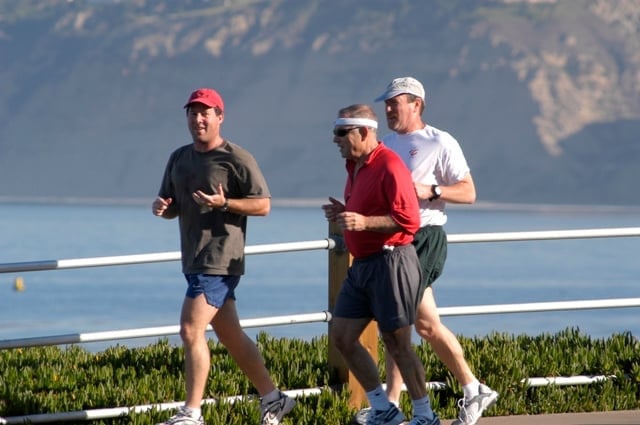
Study finds aerobic exercise reduces aging skeletal muscle fibrosis
Walking in parks or along sidewalks in Chinese cities, it is common to encounter runners or joggers. In addition to promoting physical fitness, they could also be alleviating aging skeletal muscle fibrosis through aerobic exercise. According to a recent research article published in the Journal of Cachexia, Sarcopenia and Muscle, Chinese researchers have disclosed that aerobic exercise effectively reverses decline in endurance capacity and mitigates muscle atrophy in aged mice. Aging negatively impacts tissue repair, particularly in skeletal muscle, where the regenerative capacity of muscle stem cells (MuSCs) diminishes with age. Although aerobic exercise is known to attenuate skeletal muscle atrophy, its specific impact on the regenerative and repair capacity of MuSCs remained unclear. The researchers from the South China Normal University exposed mice to moderate-intensity continuous training (MICT) from either nine months to 25 months or 20 months to 25 months, and evaluated the effects of aerobic exercise on MuSCs function and muscle regeneration. The results showed that the MICT initiated at both nine and 20 months led to a marked increase in running duration and distance, according to the study. Additionally, the MICT resulted in increased skeletal muscle weight and an enhanced cross-sectional area. Notably, the secretion of connective tissue growth factor increases in the MuSCs aging process, which not only impairs the regenerative capacity of MuSCs, but also leads to skeletal muscle fibrosis. Aerobic exercise has shown the capacity to lower this harmful effect, and thus it could be useful to promote it among the elderly.

Walking in parks or along sidewalks in Chinese cities, it is common to encounter runners or joggers. In addition to promoting physical fitness, they could also be alleviating aging skeletal muscle fibrosis through aerobic exercise. According to a recent research article published in the Journal of Cachexia, Sarcopenia and Muscle, Chinese researchers have disclosed that aerobic exercise effectively reverses decline in endurance capacity and mitigates muscle atrophy in aged mice. Aging negatively impacts tissue repair, particularly in skeletal muscle, where the regenerative capacity of muscle stem cells (MuSCs) diminishes with age. Although aerobic exercise is known to attenuate skeletal muscle atrophy, its specific impact on the regenerative and repair capacity of MuSCs remained unclear. The researchers from the South China Normal University exposed mice to moderate-intensity continuous training (MICT) from either nine months to 25 months or 20 months to 25 months, and evaluated the effects of aerobic exercise on MuSCs function and muscle regeneration. The results showed that the MICT initiated at both nine and 20 months led to a marked increase in running duration and distance, according to the study. Additionally, the MICT resulted in increased skeletal muscle weight and an enhanced cross-sectional area. Notably, the secretion of connective tissue growth factor increases in the MuSCs aging process, which not only impairs the regenerative capacity of MuSCs, but also leads to skeletal muscle fibrosis. Aerobic exercise has shown the capacity to lower this harmful effect, and thus it could be useful to promote it among the elderly.
